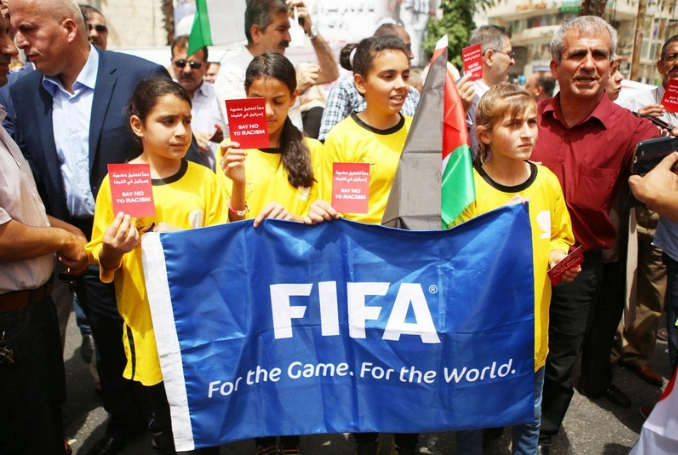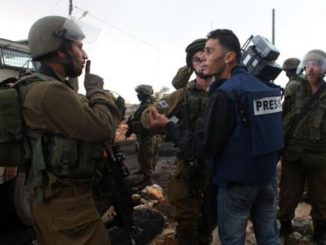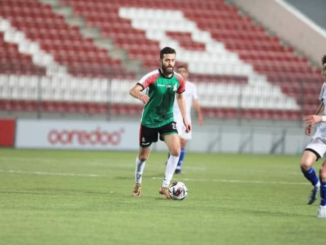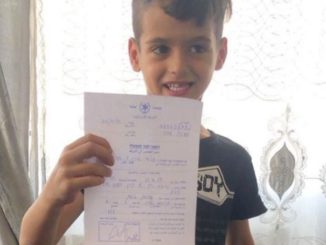
By Ramzy Baroud 
The Palestinian Football Association is struggling to survive. Combined US-Israeli pressure on Palestinian organizations that provide aid and support to the Palestinian people is now felt in the field of sports as well. In recent months, the association’s budget has been slashed by more than half, and the new football season may be canceled entirely.
In Palestine, football, in particular, represents more than just a game. It provides respite, continuity, hope, and unity.
The Palestine Football Association has been in existence since 1928, that is 20 years before Israel was founded on destroyed Palestinian cities, towns and villages. But, not even the tragic Nakba would end the sport in Palestine. When Palestine was admitted as a full member of the Fédération Internationale de Football Association (FIFA) in 1998, a rare moment of triumph prevailed over the sense of political stagnation. The Palestinian national team became a representation of a collective sense of pride and defiance. It meant that despite Israeli military restrictions, the targeting of Palestinian athletes and the bombing of stadiums and sports facilities, Palestinians continue to embrace life and thrive.
Even after the factional clash between Fatah and Hamas and the subsequent political disconnect between Gaza and the West Bank, sports continued to provide a critical outlet for unity. While Gaza and the West Bank have their own football leagues, they still competed in a final match to determine the winner of the Palestine Cup.
Alas, last month, Israel prevented the Rafah football team from reaching the West Bank, to meet its Balata Youth Centre rivals in the Cup’s final match.
Israel’s restrictions on Palestinian sports is relentless and is part of a long record of making it nearly impossible for Palestinians to pursue activities that should have no bearing on “Israel’s security”.
The Palestine national team is possibly the most beleaguered football team in the world today.
“Due to Israeli restrictions, the Palestinian national team has been banned from playing their home games in Palestinian stadiums for many years and is forced to host them in nearby Arab countries,” wrote Hazem Balousha in Arab News. Effectively, this means that all Palestinian football training camps have to be held outside Palestine, often with the team’s Gaza squad unable to join their peers. Meanwhile, no foreign trainers are allowed to enter besieged Gaza.
Moreover, the occasional news of a Palestinian footballer being shot, beaten or imprisoned, though tragic, is routine news for Palestinians.
Israel has, however, hardly received any serious reprimand for its unlawful actions. Despite Tel Aviv’s constant violations of Palestinian sports rights, FIFA and other international sports federations continue to treat Israel with kid gloves. Worse, instead of being punished for violating international law regarding sports, Israel is often rewarded. The fact that Israel’s Football Association includes six teams from illegal Jewish settlements (colonies that are built on stolen Palestinian land) seems to be of no consequence to FIFA’s bosses.
Recently, the sports brand, Puma has replaced Adidas as the sponsor of Israel’s national football teams. The decision indicates that the company is completely oblivious to sports apartheid in Israel. Puma’s lack of sportsmanship is now the subject of a major international boycott campaign led by the Boycott, Divestment and Sanctions (BDS) movement. Over 200 Palestinian sports clubs support the call on Puma to end its dealings with Israel, in an attempt to pressure Israel to put an end to its violations of Palestinian human rights.
In fact, Israel should be boycotted in every possible way until it relents and respects international law regarding the rights and freedom of the Palestinian people. Often, however, we overlook the centrality of sports boycott in the overall boycott strategy.
Sports boycott engages, not only politicians and intellectuals but also ordinary people around the world. “The case for football boycott of Israel is just as compelling as that of football boycott of South Africa,” BDS wrote on its homepage. For one, “boycott would spread awareness of Israeli racism and abuse of Palestinian human rights across the football community worldwide.”
Moreover, boycotting Israeli sports, especially football, will deny Israel an important tool aimed at normalizing its military occupation, apartheid, and racism. It will force ordinary Israelis to think about the consequences of their support of right-wing racist governments. It could, in fact, it will espouse a serious debate in Israel.
This same logic worked in Apartheid South Africa and was a powerful tool in the international support for the anti-Apartheid movement in that country.
But with FIFA and others turning a blind eye to Israeli violations, Palestinians continue to suffer while Israel continues to sell itself as a sports-loving member of FIFA and other sports organizations.
“Divestment and boycotts are familiar tactics from the international anti-apartheid movement, but they didn’t match the psychological power of the sports boycott,” wrote Tony Karon in the National.
“Rugby was an essential part of the identity of the South African regime’s base, and denying their ability to compete on an international stage was one of the most painful sanctions in the minds of many apartheid supporters.”
As for FIFA, it suspended the membership of the Football Association of South Africa in 1961, followed by a decision, in 1968 by the United Nations General Assembly that called for boycotting all sports bodies in South Africa that practiced apartheid. The pressure continued to mount, uniting international solidarity around clear and achievable objectives.
Many organizations have taken the lead in their respective countries to create a similar movement for Palestine. Israel must not be allowed to participate in international sports while simultaneously cementing its apartheid, racist regime in Palestine.
– Ramzy Baroud is a journalist, author and editor of The Palestine Chronicle. His last book is ‘The Last Earth: A Palestinian Story’ (Pluto Press, London) and his forthcoming book is ‘These Chains Will Be Broken: Palestinian Stories of Struggle and Defiance in Israeli Prisons’ (Clarity Press, Atlanta). Baroud has a Ph.D. in Palestine Studies from the University of Exeter. His website is www.ramzybaroud.net

– Ramzy Baroud is a journalist and the Editor of The Palestine Chronicle. He is the author of six books. His latest book, co-edited with Ilan Pappé, is “Our Vision for Liberation: Engaged Palestinian Leaders and Intellectuals Speak out”. Dr. Baroud is a Non-resident Senior Research Fellow at the Center for Islam and Global Affairs (CIGA). His website is www.ramzybaroud.net







